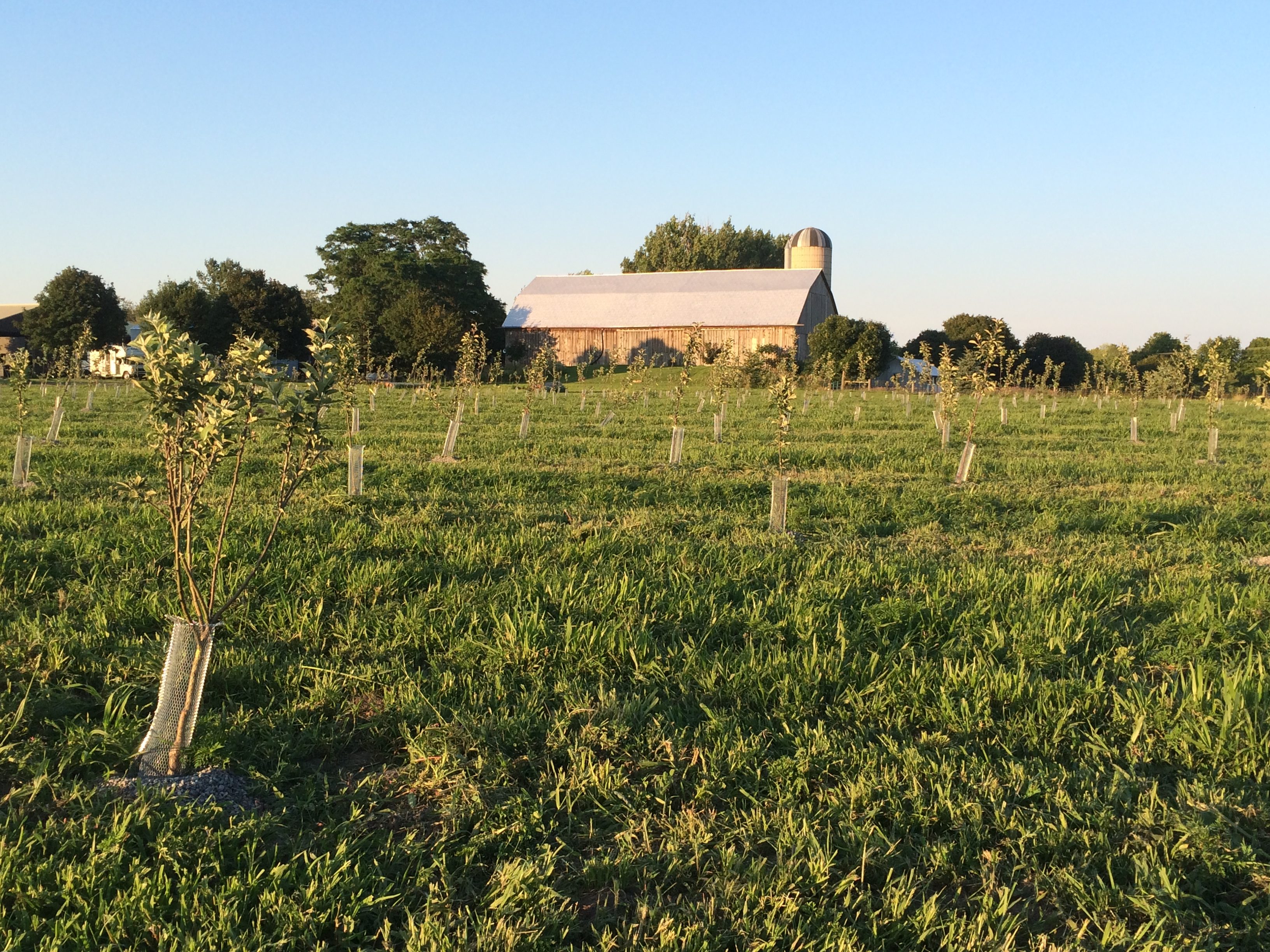Matt Somerville - Saving the family barn
Historic barns are an important part of our collective mental image of the Canadian rural landscape. And yet they are disappearing at an alarming rate, prey to the destabilizing challenges that many rural communities are facing.
Matt Somerville of Port Perry, ON knows first-hand the complexities of conserving important elements of our rural heritage: he not only works as a heritage planner specializing in rural issues, but he is also a farmer, trying out creative ways to revitalize his family farm.
As a former municipal urban planner and now as a heritage planner for his own company, Somerville Planning, he finds that people generally don’t know what to do with rural structures like barns. “As cities expand and encroach on farms, you’re lucky if just the farmhouse gets saved,” says Somerville. “But that’s only one part of the traditional farmstead.”
But urban sprawl isn’t the only threat to barns. Evolving farming technologies are increasingly making these structures obsolete for their traditional roles in animal husbandry, feed storage, and even equipment protection.
“A lot of barns are getting to the end of their functional life, and it’s easy to forget that deterioration is happening in a barn if you’re not using it,” says Somerville. “If you use it, you’ll notice issues like damaged siding or needing to patch a floor. Many just need minor maintenance in order to avoid rapid deterioration.”
For individuals and organizations that would like to see historic barns preserved for the contribution they make to the overall landscape, there are also important challenges.
“Compared to making the case for saving places of worship, for example, barns are a harder nut to crack because they’re privately owned,” says Somerville. “With places of worship, they have a natural public function and a strong relationship to the community.” Barns, on the other hand, are typically adjacent to private dwellings and are isolated from contact with the public.
Rural municipalities that are already struggling with economic stagnation, depopulation, and aging infrastructure have very little appetite or capacity to put in place the regulations and incentives that could help slow the pace of loss.
There is help available for private owners who want to protect their barns. Somerville sits on the Board of the Ontario Barn Preservation Society, whose mission is to be the source where owners can go to find information related to barns—from a glossary of terms to potential use strategies. The new group is currently working on determining its objectives and getting incorporated, but Somerville is optimistic about the initiative.
He’s also walking the talk: he has planted an orchard at his family’s farm and has started up a craft cidery that, for now, is operating from a temporary facility in the city but will soon be located at the farm in a new building, complete with tasting room. He also renovated the farm’s historic barn in 2014 for his own wedding and it now serves as an outdoor living room for the summer, fully equipped with a projector, screen, and bar.
Rehabilitating the barn came with its own set of issues—complying to the building and fire codes in particular—however, achieving equivalent performance has been possible through sensitively designed upgrades.
Somerville is of a new generation of farmers that recognize that it’s possible to retain the core of the farm and use it as a higher value agriculture space. Specialized crops that are transformed on site into multiple products is one way of achieving that higher value. Community-supported agriculture (CSA) is another popular model, where community members buy shares of a farmer’s crop and, in return, receive a supply of fresh vegetables (or meat, honey, maple syrup, etc.) during a season.
“A lot of people don’t know where their food comes from,” says Somerville. “Through value-added local agriculture, like the cidery or the CSA model, we can reconnect people to their food sources. And that, in turn, will make rural areas more vibrant and open up more opportunities to give historic barns a new lease on life.”
Reach Matt at matthew@somervilleplanning.ca
Instagram account: @twoblokescider


